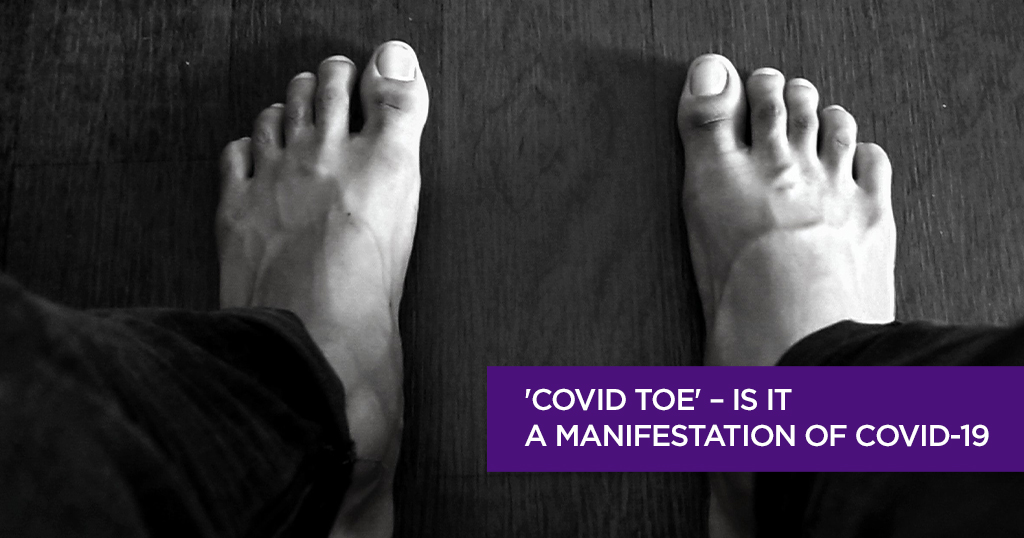Could not find what you are looking for?
- Health Library
- Travel During Pregnancy: What You Should Know Before Packing Your Bags
Travel During Pregnancy: What You Should Know Before Packing Your Bags

Pregnancy is a beautiful phase in life, filled with anticipation, excitement, and plenty of planning. But what if your plans include a bit of travel? Maybe it's a family function you can't miss, a much-needed vacation, or a work trip that's been in the pipeline for months. Naturally, the question pops up: Is it safe to travel during pregnancy?
The short answer is: for many women, yes. But it's not always that simple.
Every pregnancy is unique. Travel may be safe for some but not advisable for others, especially when certain medical conditions are involved. This article will help you understand when it's okay to travel, when it's better to hold off, and what you should always do before stepping out with a baby on board. Before making any travel plans, it's essential to consult with your healthcare provider first.
When Travel Might Not Be a Good Idea
Let’s be honest—pregnancy is not the time for spontaneous trips or pushing limits. If you’re managing a high-risk condition or experiencing certain symptoms, your doctor might suggest avoiding travel altogether. Here are some of the key situations where you need to be cautious.
1. Preterm Labor Risk
Have you had an early delivery before? Or maybe your cervix is shorter than normal (typically less than 25mm as measured by transvaginal ultrasound)? These are red flags.
Traveling with a risk of preterm labor isn’t safe. Unexpected contractions can happen anywhere, and it’s important to be close to a hospital equipped to handle emergencies. Even basic activities like carrying luggage or walking through a crowded airport can put strain on your body. Early labor requires immediate attention and medical facilities that may not be accessible during travel.
2. Placenta Issues
Conditions like placenta previa or placental abruption aren’t just complicated—they can become critical without warning.
These conditions can cause sudden, heavy bleeding. Being far from a hospital isn’t a risk worth taking. Depending on the stage of pregnancy and severity, your doctor may advise reduced movement or hospital-based observation. Emergency care for placental issues often involves specialized intervention and monitoring that may not be available on the go.
3. Expecting Twins or More
Carrying multiples? That’s a double (or triple) joy—but also comes with extra care.
The chances of early labor go up with twins or triplets, with travel restrictions often recommended after 24-28 weeks for twin pregnancies and earlier for higher-order multiples. Long journeys can be exhausting and uncomfortable. Rest and consistent monitoring are usually safer choices in such cases. Additionally, the physical toll of carrying multiples can be greater, increasing the likelihood of complications if you're far from your care team.
4. High Blood Pressure or Preeclampsia
Managing high blood pressure or signs of preeclampsia during pregnancy? You’re already under close observation—and rightly so.
These conditions can take a sudden turn. Travel-related stress, dehydration, or even high altitudes can aggravate the issue. Symptoms like headaches, vision changes, or swelling can’t be ignored. In advanced cases, preeclampsia can escalate to eclampsia, which is a medical emergency.
5. Uncontrolled Diabetes
Whether you have gestational or pre-existing diabetes, it’s crucial to keep those sugar levels steady.
Travel routines often mean irregular meals, delayed medication, and unfamiliar foods—all of which can throw your sugar levels off. Poor control can increase risks for both mother and baby, including sudden drops or spikes in blood sugar.
6. Heart or Lung Conditions
If you’ve ever had a heart or breathing issue, this is not the time to test your limits.
Even simple tasks can feel more taxing during pregnancy. Add altitude changes or poor air quality, and it gets riskier. Always talk to your specialist first. Your body is already working harder during pregnancy, and any added strain could lead to dangerous consequences.
7. History of Blood Clots
If you’ve had a clot before (like DVT or a lung embolism), travel might not be safe for you.
Pregnancy already makes your blood thicker. Sitting still during flights or long drives can make things worse. Your doctor might suggest compression stockings or preventive medication. Ignoring these precautions can lead to life-threatening complications like pulmonary embolism.
8. Fetal Growth Issues
If your baby isn’t growing as expected, you need more frequent monitoring.
Travel might cause you to miss key appointments like Doppler scans or growth ultrasounds. You also need to stay close in case delivery needs to be considered early. Travel could also increase physical stress, which is not ideal for pregnancies that already require close surveillance.
9. Any Bleeding During Pregnancy
Whether it's spotting or heavy bleeding, it’s a sign to slow down.
Bleeding can mean many things—none of which you want to handle away from a trusted healthcare team. Until the cause is identified and under control, travel is off the table. Sometimes bleeding is minor, but it could also signal something serious like a miscarriage or placental separation.
10. Severe Anemia or Infection
Feeling fatigued or battling an infection? It's best to recover first.
Anemia can make travel draining, and infections like UTIs or fevers need immediate attention. Your immune system is more vulnerable during pregnancy. If left untreated, some infections can affect the baby or lead to preterm labor.
So, When Is It Okay to Travel?
Most women with a healthy, low-risk pregnancy can travel—especially during the second trimester (weeks 14 to 28). This is often called the “golden period” because:
- Morning sickness usually fades
- You have more energy
- The risk of miscarriage is lower
- You're not yet dealing with the fatigue of late pregnancy
But even then, a prenatal check-up before you leave is a must. A clean bill of health from your doctor ensures peace of mind while you’re away.
Smart Travel Tips for Moms-to-Be
Here are some practical, no-nonsense tips that can make your journey smoother and safer:
1. Pack Smart
- Keep all medications, supplements, and prenatal vitamins in your hand luggage
- Bring a printed copy of your medical reports and doctor’s contact info
- Carry sanitary supplies, a change of clothes, and extra undergarments
- Don’t forget hand sanitizers, wet wipes, tissues, and a travel pillow for support
2. Eat and Drink Mindfully
- Always carry dry snacks like nuts, seeds, and whole-grain biscuits
- Stick to bottled water or boiled water to stay hydrated
- Avoid raw or undercooked food, and opt for freshly made meals wherever possible
- Eat smaller meals more frequently to manage bloating and acidity
3. Stay Mobile
- Walk around every 1–2 hours during flights or long car journeys
- Flex your feet and do simple calf stretches while sitting
- Wear compression socks if your doctor recommends them to improve circulation
4. Choose Comfort Over Convenience
- Dress in layers and wear breathable, stretchable clothes
- Go for flat, comfortable shoes with a good grip
- Avoid overly ambitious travel itineraries. Factor in breaks and downtime
5. Be Prepared for the Unexpected
- Keep emergency contacts saved in your phone and written down in your wallet
- Research nearby hospitals or clinics at your travel destination
- Carry travel insurance that includes maternity and emergency care
6. Listen to Your Body
- Fatigue, nausea, or breathlessness are signs to take it easy
- Don’t hesitate to cancel plans or return early if needed
- Your body is already doing a lot—respect its limits
Conclusion
Pregnancy doesn’t have to put your life on hold—but it does demand a few more precautions. If you’re considering travel, the key is simple: listen to your body, follow your doctor’s advice, and plan ahead.
With the right planning and medical advice, many women can travel safely and comfortably. And if you ever feel unsure, a quick consultation with a trusted healthcare provider can bring clarity.
At Apollo Hospitals, we’re committed to supporting you through every stage of pregnancy—from regular checkups to high-risk care and beyond. Our experienced team is just a call away to help you make informed, confident decisions for your health and your baby’s.
Because when it comes to motherhood, care and caution go hand in hand.
Frequently Asked Questions (FAQs)
Have more questions? Here are answers to some of the most common concerns from expectant mothers.
1. Is it safe to travel during the first trimester?
Traveling is generally safe if you feel well, but many women experience nausea and fatigue early in pregnancy. Always consult your doctor first.
2. When is the safest time to travel during pregnancy?
The second trimester (14–28 weeks) is considered the safest and most comfortable time to travel.
3. Can I fly during pregnancy?
Yes, most airlines allow pregnant women to fly up to 36 weeks for domestic flights, but policies vary between airlines. International flights often have stricter restrictions (sometimes as early as 28 weeks), and a doctor's clearance is typically required.
4. What documents should I carry while traveling?
Carry your prenatal records, prescriptions, emergency contacts, and ID proof. It’s wise to keep both digital and hard copies.
5. Can I travel alone while pregnant?
While it's possible, having a companion ensures you have support if you feel unwell or need assistance.
6. What precautions should I take on a road trip?
Wear a seatbelt correctly, take frequent breaks to stretch your legs, stay hydrated, and avoid bumpy routes.
7. Are there foods I should avoid during travel?
Yes, avoid street food, raw or undercooked items, and unfiltered water. Stick to freshly cooked and familiar meals.
8. How can I reduce swelling during long journeys?
Move your feet often, wear loose clothing, stay hydrated, and consider compression socks if advised by your doctor.
9. Is travel insurance necessary during pregnancy?
Yes, make sure it covers maternity care and emergencies at your travel destination.
10. Should I consult a doctor before every trip?
Absolutely. A quick check-up ensures you're fit to travel and helps identify any red flags before departure.
11. Are travel vaccinations safe during pregnancy?
Some vaccinations are considered safe during pregnancy, while others (especially live vaccines) are not recommended. Consult with your healthcare provider well in advance of international travel to discuss which vaccines are appropriate for your specific destination and situation.

















